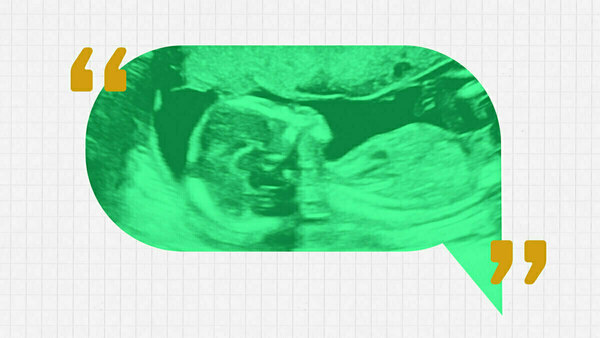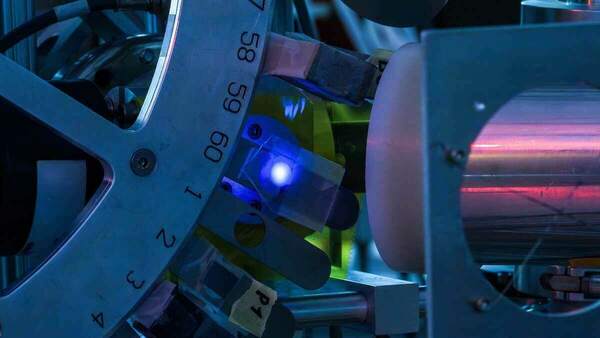Megan McDermott joins ND–IBM Tech Ethics Lab as new Notre Dame director
The Notre Dame–IBM Technology Ethics Lab, a critical component of the Institute for Ethics and the Common Good (ECG) and the Notre Dame Ethics Initiative, welcomes Megan McDermott as the new Notre Dame director of the Tech Ethics Lab.
In her role, McDermott leads the Lab’s strategic planning and operations, orchestrates the work of faculty, doctoral students, and external partners involved in various Lab initiatives, and serves as the primary interface with Sara Berger, who spearheads IBM’s side of the Lab’s work. Stewarding the Lab’s research agenda and deepening its engagement with the broader ecosystem of industry, academic, and public-sector stakeholders is Megan’s ultimate aim, continuing to build collaborative opportunities across disciplines and fostering initiatives that respond to emerging ethical questions around responsible technological innovation, application, governance, and social impact.
Megan joins the Lab after nearly four years with the Pulte Institute for Global Development at Notre Dame, where she focused on research translation, stakeholder engagement, and systems-informed approaches to research and evaluation. With a background in anthropology and systems thinking, she brings over a decade of cross-sector experience—spanning education, human rights, and healthcare among others—in roles centered on participatory methodologies and cross-cultural collaboration. Her work has included designing complexity-aware frameworks for research and evaluation, leading root cause analyses to support socially responsible programming, and developing tools that strengthen research communication and stakeholder alignment. She holds an MSc in anthropology and development management from the London School of Economics.
“I’m honored to step into this role alongside so many brilliant colleagues and excited to help shape the next chapter of the Tech Ethics Lab,” said McDermott. “Technology doesn’t exist in a vacuum—it’s deeply embedded in cultural values, power dynamics, and human relationships. I look forward to helping the Lab continue to ask the hard questions and support collaborative efforts that imagine—and hopefully help build—a more ethical, human-centered technological future.”
…
The Notre Dame–IBM Technology Ethics Lab, a critical component of the Institute for Ethics and the Common Good and the Notre Dame Ethics Initiative, promotes interdisciplinary research and policy leadership in technology ethics and is supported by a $20-million investment from IBM.
Originally published by at ethics.nd.edu on June 30, 2025.
Latest Research
- Doctoral student Joryán Hernández to receive inaugural Sr. Dianna Ortiz, OSU Peacemaker AwardJoryán Hernández, a peace studies and theology doctoral student at the University of Notre Dame, was tapped as the first-ever recipient of the Sr. Dianna Ortiz, OSU Peacemaker Award from Pax…
- The Institute for Educational Initiatives at Notre Dame Launches Free Math App to Help Teachers Strengthen Students’ Understanding of Numbers and OperationsThe Number Sense Assessment app gives educators quick, research-based insights to target instruction and improve student outcomes Notre Dame, IN — Researchers at the Institute for Educational Initiatives at the University of Notre Dame have launched…
- U.S. Senator Todd Young on bridge-building in Congress and Notre Dame’s role in strengthening civil discourseThe University’s home state Senator discusses the importance of fostering common ground, on Capitol Hill and on campus
- Notre Dame researchers to shed light on the Brazilian Amazon, conflict resolution, microplastics, and moreNotre Dame Research (NDR) has selected five awardees of the Research and Scholarship Program – Regular Grant (RSP-RG) and five awardees of the Research…
- First impressions count: How babies are talked about during ultrasounds impacts parent perceptions, caregiving relationshipPsychologist Kaylin Hill studied the impact of a parent’s first impression of their baby during an ultrasound exam. The words used by the medical professional to describe the baby (positive or negative) influence how the parents perceive their baby, relate to them after they're born and even how that child behaves as a toddler. The research has broad implications for how we train medical professionals to interact with expectant parents, as well as how we care for parents during the perinatal period when they are most susceptible to depression.
- Researchers at Notre Dame detect ‘forever chemicals’ in reusable feminine hygiene productsWhen a reporter with the Sierra Club magazine asked Graham Peaslee, a physicist at the University of Notre Dame, to test several different samples of unused menstrual underwear for per- and polyfluoroalkyl substances (PFAS) in 2019, the results fueled concern over chemical exposure in feminine hygiene products — which ultimately ended up in a $5 million lawsuit against the period and incontinence underwear brand Thinx. Then in 2023, the New York Times asked Peaslee to test 44 additional period and incontinence products for PFAS, a class of toxic fluorinated compounds inherently repellent to oil, water, soil and stains, and known as “forever chemicals” for their exceptionally strong chemical and thermal stability. Measurable PFAS were found in some layers of many of the products tested — some low enough to suggest the chemicals may have transferred off packaging materials, while others contained higher concentrations, suggesting the chemicals were intentionally used during the manufacturing process. In the meantime, another group of researchers published a study that found PFAS in single-use period products, leading Peaslee and his lab to widen their investigation into all sorts of reusable feminine hygiene products — often viewed as an eco-friendly option by consumers. Now, the results of that study have been published in Environmental Science & Technology Letters.













